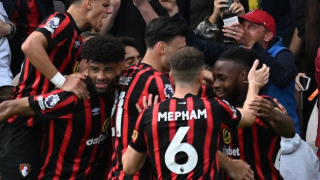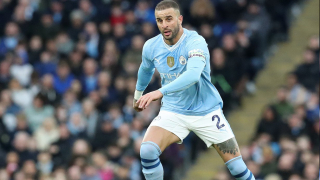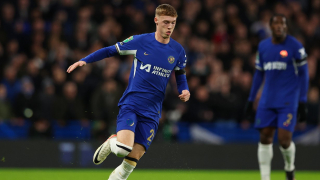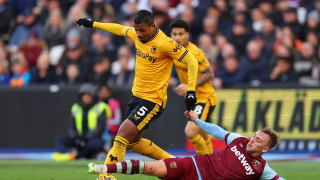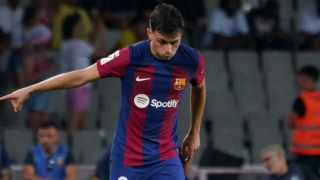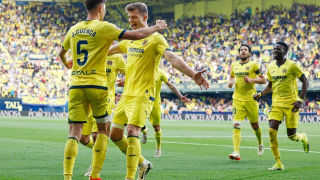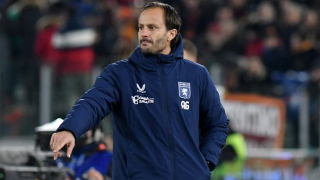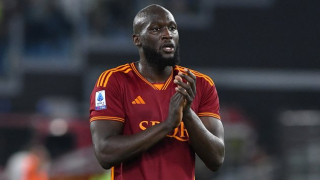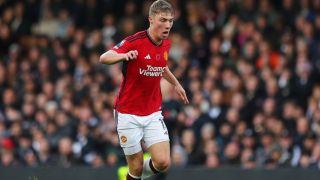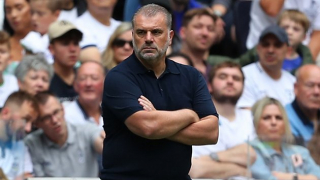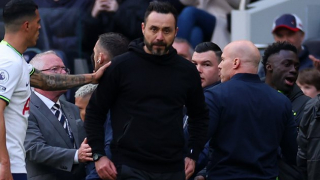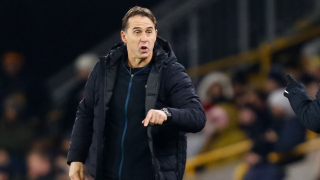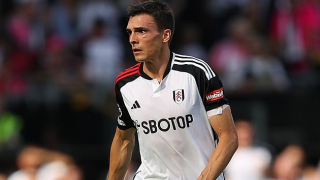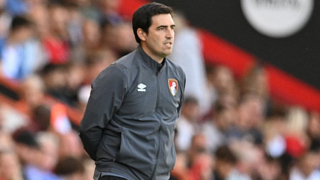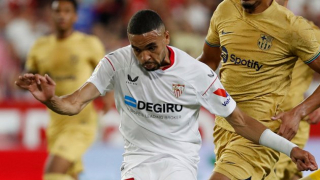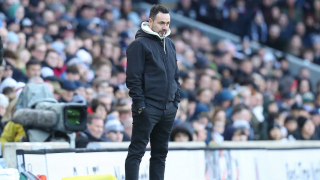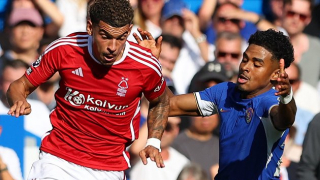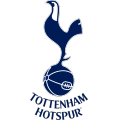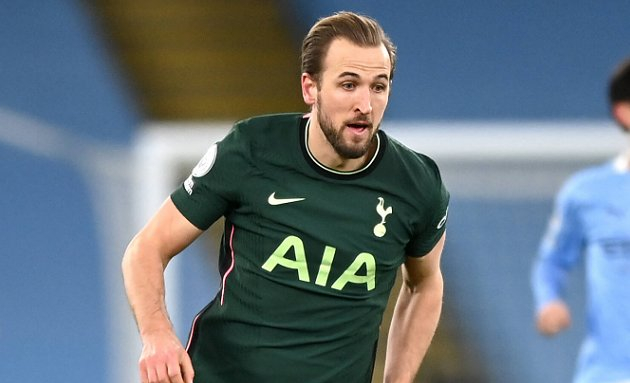As it stands, Tottenham Hotspur doesn't know who their manager will be next season.
But the question of who comes in to replace Jose Mourinho isn't even the biggest one the club will have to answer this summer. The much more important quandary is: what do they do about Harry Kane?
Kane has been the club's talisman and top goalscorer for seven years. He has led from the front and proved himself one of the finest strikers in football today. However, Tottenham now has to start planning for life without him. Kane has admitted his desire to win trophies, something Spurs have failed to do since 2008, and has reportedly told the club he intends to leave.
With uncertainty around Kane's future, Tottenham needs to develop a contingency plan for life without him. If he does leave, how can they replace him?
LOSING KANE: WHAT IT MEANS TO SPURS
Kane leaving would be a transfer with huge ramifications for Tottenham. With 23 goals and 14 assists to his name this Premier League season, he was their most consistent scorer and creator of goals. He was responsible for scoring 33.8% of their league total, and setting up a further 20.6%. Overall, he was directly involved in 54.4% of Spurs' league goals.
The second-highest scorer after Kane was Son Heung-min. Son scored 17, but over half of them were set up by Kane. The pair worked brilliantly together this season, with Kane picking out Son's runs time after time. Behind Son, the third-highest scorer was Gareth Bale, who hit 10. However, Bale was only on loan and, beyond that, Lucas Moura and Tanguy Ndombele were the next-highest scorers, with a mere three apiece.
Kane can score from inside and outside the box, on the ground or in the air. He also links play, and creates from deeper positions. His mere presence leads to openings for teammates, attracting centre-backs and making space for the likes of Son to hit. He is the most rounded striker around right now, and without his presence Tottenham will be a significantly less potent attacking force. Replacing his output would be a monumental task, and history shows it almost never ends well.
POST-SUPERSTAR SEASONS: HISTORIC EXAMPLES AND LESSONS
There are plenty of examples from the Premier League's past of teams losing their star player and top scorer. Here are five of the most recent and relevant to Tottenham.
- In 2009, Manchester United sold Cristiano Ronaldo to Real Madrid.
- In 2012, Arsenal sold Robin van Persie to Manchester United.
- In 2013, Tottenham sold Gareth Bale to Real Madrid.
- In 2014, Liverpool sold Luis Suarez to Barcelona.
- In 2017, Everton sold Romelu Lukaku to Manchester United.
Every single one of these five examples led to a lower league position the very next season. Only one team, Arsenal after selling Van Persie, gained more points the next season, and only Manchester United scored more goals. Generally, selling the superstar goalscorer means a drop in goals scored, points won and league position the following season. This is the historic precedent Tottenham have to fight against if Kane leaves.
Manchester United of 2009 perhaps don't apply to the current situation at Tottenham. They already had two other top class strikers in Wayne Rooney and Dimitar Berbatov, both of whom upped their games after Ronaldo departed. Rooney in particular took on a completely different role, becoming more of a penalty box poacher and scoring more with headers off high crosses.
Arsenal in 2012 are perhaps the one positive example for Tottenham. They didn't try to directly replace Van Persie. Instead, they signed three different types of goal threat to play in different areas of the team. Olivier Giroud offered them physicality, aerial strength and hold-up play up front. Lukas Podolski offered pace and a powerful shot coming in from wide. Santi Cazorla brought two-footed shooting, skill and creativity from midfield. Van Persie had scored 30 goals the previous year; between them Giroud, Podolski and Cazorla scored 34.
However, while Arsenal successfully filled their Van Persie-shaped hole, others failed badly.
After selling Suarez, Liverpool made the mistake of signing the unreliable Mario Balotelli, a 32-year-old Rickie Lambert, and a completely unproven Divock Origi. Balotelli and Lambert lasted one season at Anfield, contributing a grand total of three league goals between them. Origi is still there now, but his best tally for a single Premier League season is seven.
Everton made similar errors after letting Lukaku go. They brought in an ageing Rooney, who was no longer an out-and-out striker and hadn't hit double figures for two years. Additionally, they signed Sandro Ramirez after one good season in La Liga. Rooney had one decent campaign, but Sandro failed to score a single league goal in four years with the club.
Like Liverpool in 2014 and Everton in 2017, Tottenham used the money generated by Bale's departure in 2013 to Real Madrid to finance a small-scale squad refurb. They signed Erik Lamela after one season of regular scoring with Roma, but his best tally for a single season at Spurs is five. They also signed Nacer Chadli from the Eredivisie, who shone intermittently. Perhaps the biggest error was the signature of striker Roberto Soldado.
Soldado was 27 years old and had never played outside of Spain. He later admitted he failed to adapt to the English game. "The physical aspect with defenders [in Spain] isn't the same as in England," he said in an interview with The i. "I...knew I had to come out of the box more. When it came to the penalty box perhaps I wasn't getting where I should have been. I got to a point where I was lost." After seven league goals in 52 games, Soldado returned to Spain.
Based on the five examples above, here are some lessons Tottenham can learn from the recent past as they peer into a possible post-Kane future.
- Don't gamble on players with one good scoring season (*cough* Lamela). It could be completely random.
- Avoid the law of averages. Every single one of the three/four attackers you sign could fail (we're looking at you, Liverpool 2014/15).
- If going abroad, choose adaptable attackers who have proven they can score in different countries. Or…
- Sign those with a strong stylistic fit to English football (think Giroud).
- Accept you are extremely likely to have an initial drop in performance.
HARRY KANE: A MAN WITHOUT DIRECT REPLACEMENT
It's pretty clear that, historically, teams struggle immediately after selling their top scorer. Who knew!? Now we've categorically established that and looked at how most previous examples led to an almighty mess, what should Tottenham do this summer assuming Kane moves on?
One way of solving the problem would be to look for the best and most suitable direct replacement for Kane. However, putting all the eggs in one basket is extremely risky, especially when considering it's almost certain the replacement won't live up to Kane's standards. Kane is widely accepted to be among the top strikers in the world, so unless Tottenham somehow find the financing and reputation to lure Robert Lewandowski or Kylian Mbappe to London, they aren't going to sign an equally competent or better striker.
With this in mind, the best approach here would be to search for strikers who stylistically are similar to Kane and have the physical attributes to cope with aggressive Premier League defending. Below is a list of 10 players who, according to FBref.com, are similar to Kane in terms of their statistical profiles over the last year.
Edin Dzeko and Zlatan Ibrahimovic are both past their best. Both could be worth consideration as short-term, Fernando Llorente-style options, though it must be said they don't fit the type of player Tottenham typically tries to sign. Romelu Lukaku is enjoying life in Italian football with title-winning Inter Milan, while Alvaro Morata would be unwelcome considering he failed to perform in the Premier League with Chelsea. Michail Antonio is 31 years old and too prone to injury, while Andy Delort is 29 and didn't make the grade at Championship level with Wigan six years ago.
That leaves four players from the above list. Of that quartet, the two that pass the eye test are Gerard Moreno and Andrea Belotti.
Taking away penalties, Moreno has proven himself as a one-goal-every-two-or-three games striker with Villarreal and has been named in the Spain squad for Euro 2020. He possesses excellent movement, can run behind or show for the ball to feet, has good footwork and at 5ft 11in he isn't lacking in height. Technically, he is perhaps the most suitable Kane successor. However, he is 29 years old, doesn't score or create as consistently and, like Soldado, hasn't played outside of Spain.
At 27, Belotti is two years younger than Moreno. He doesn't have the same skill or link play, but he is stronger, runs the channels, can hold the ball up and offers more aerial threat. Belotti has been a regular in the Italy squad for five years, however he too hasn't played outside of his home country. He's also nowhere near as prolific as Kane – in six years at Torino he has only once scored more than 10 non-penalty goals.
Replacing Kane with one striker using the money generated from his sale would make sense if there was someone of the level and stylistic fit to do the job. But there isn't. There is no one player who can tick all the boxes he ticks: penalty box threat, long shooting, aerial threat, set piece threat, and playmaking.
If Kane goes, Tottenham may need to consider broader changes to their squad and tactics in order to successfully fill the void he leaves.
RECREATING KANE'S INFLUENCE THROUGHOUT THE SQUAD
One tactical change Tottenham could make would be to become a two-striker team. There aren't many of these around at the highest level today, but it shouldn't be completely dismissed. This change would allow them to sign two players to fill some of the roles Kane took on – one to hold the ball up, link play and provide an aerial target, and another – ideally with pace – to run behind and score from inside the box.
Edin Dzeko may be past his best, but he could be a reasonable short-term option. He adapted fairly well to the Premier League with Manchester City and is a tall, target man type with good control, link-up play and two-footed finishing. An alternative might be Sasa Kalajdzic, a 6ft 7in striker with good feet who, at 23, has more upside than Dzeko.
Kalajdzic is one of a number of strikers with plenty of potential who scored consistently in a top-five European league this season. Below are others Tottenham could consider, including the recently-linked Ollie Watkins, who proved himself at Premier League level with Aston Villa this term and would offer directness, speed, channel runs and penalty box poaching.
Signing Dzeko, Kalajdzic, Watkins, or strikers of similar ilk would only be a first step towards replacing Kane. Whoever takes his place up front for Tottenham would need more support on the goalscoring end from other areas of the team.
Earlier we broke down the problem of Tottenham lacking potency behind Kane. Son had his best scoring season for Spurs in 2020/21, but a lot of his goals came directly from superlative Kane passes. Without Kane picking out his runs or creating space for his movement in behind, Son may not be so consistent in front of goal. It's unclear if Bale will join permanently, and outside of that Kane-Son-Bale the next-highest scorers were on three goals.
One potential small step forward could be from set pieces. Tottenham have players that can deliver, but not many who can score in the air off corners. The only centre-back that scored for them this season was Toby Alderweireld, with one goal – a header from an out-swinging corner against Leeds in January.
Tottenham need to refresh their central defensive options this summer anyway, so they would be wise to also look for centre-backs who can score in the air from set pieces. Below we see a list of 16 viable targets playing in Europe's top five leagues who scored three goals or more this season. Signing a couple of centre-backs in this bracket could be a way of both strengthening the defence and improving the team's set piece potency.
Spurs should also be looking for more contributions from midfield. Ndombele, Lucas and Lamela are where they are, and probably won't bag more than five or six goals per season even at their best. Perhaps more can be expected of Steven Bergwijn and Giovani Lo Celso, however. Both scored just once this season, but they hit 14 and nine respectively in their final seasons with other clubs before joining Tottenham.
Bergwijn is a quick, direct winger but he needs to become more efficient at picking out teammates or finding the net when in and around the box. Lo Celso has perhaps been hamstrung by playing a more withdrawn role at times, so playing him closer to the striker might help him make an impact. It's unclear where their ceilings are scoring-wise. Perhaps they were just newer versions of Lamela –signed hastily on the back of one season of regular scoring. The same cannot be said of Dele Alli.
Dele shone in his first two years with Tottenham. Dexterous footwork, clever runs behind, shooting and aerial threat made him the ideal foil to Kane initially, but a combination of injuries and inconsistent performances saw him dropped from the England squad by Gareth Southgate, then left out by Jose Mourinho at club level. Can he regain his previous levels under a new manager? Could he have a renaissance similar to Rooney post-Ronaldo with Manchester United in 2010? Time will tell, but it would be a huge help for a Kane-less Spurs if he did.
If Dele, Bergwijn and Lo Celso can't offer more than two goals from a combined 31 league starts, Tottenham will need to bring in new players in this area. There is no shortage of goalscoring attacking midfielders or wingers in Europe's top five leagues, as seen in the graphic below.
MINIMISING THE DAMAGE
Should Tottenham sell Kane, they will likely get a significant transfer fee. It may not eclipse the world record Paris Saint-Germain broke to sign Neymar in 2017, but it won't be far off. They won't be short on transfer money to spend, so filling Kane's scoring void throughout the squad wouldn't be out of the question. The primary targets should be centre-backs offering set piece threat, goalscoring wingers and midfielders, and a combination of different types of striker, particularly if young and under-performing players in those positions within the current squad can't step up.
Tottenham can't replace Kane but they might be able to recreate his numbers throughout the team. History tells us that it's highly unlikely they'll improve next season if he goes, but they can minimise the damage caused by his departure with smart recruitment and small tactical changes.
All graphics are courtesy of FBref.com, unless otherwise stated.

